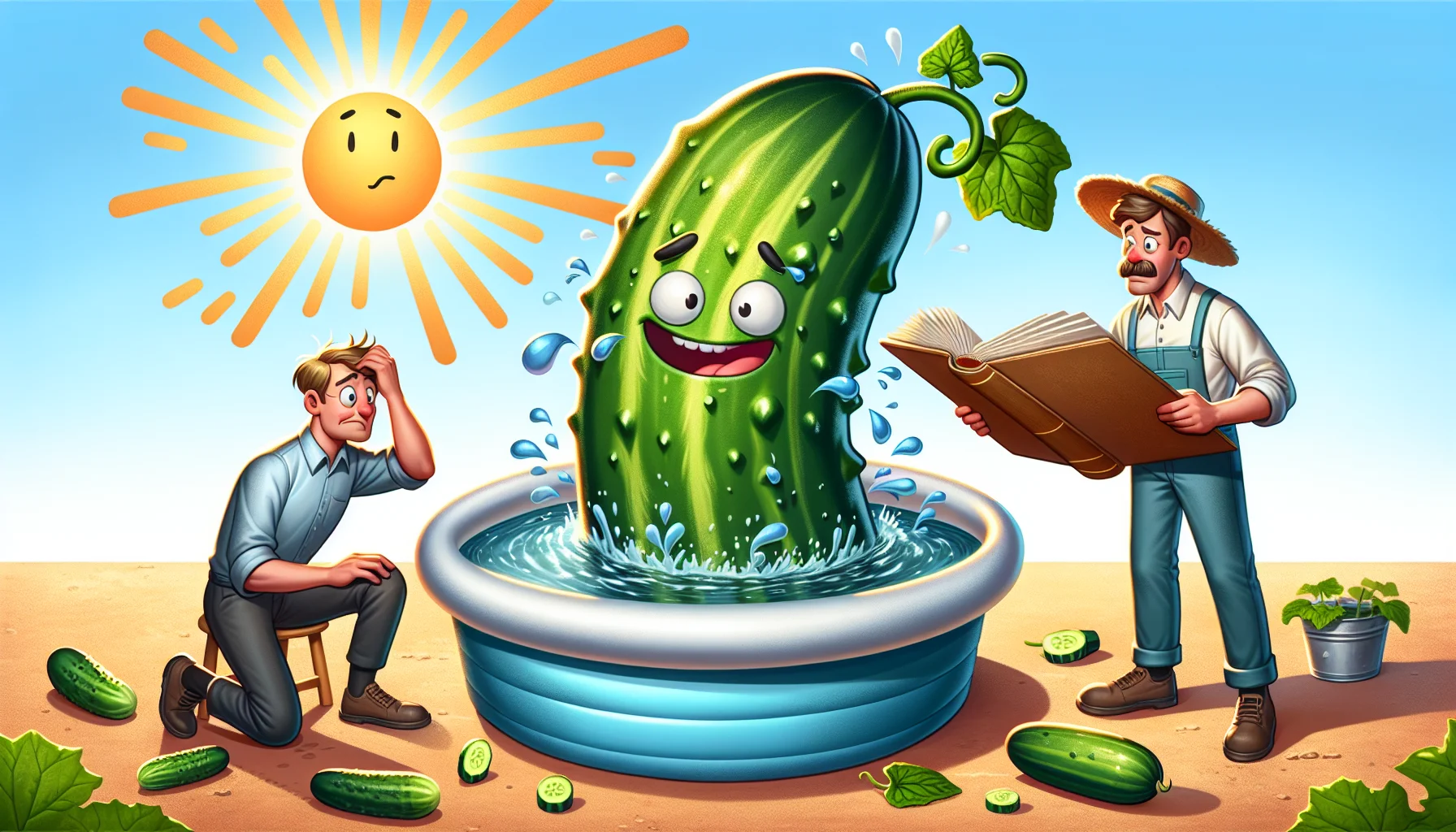How much water do cucumbers need Quiz
Test Your Knowledge
Question of
How Much Water Do Cucumbers Need?
Proper watering is crucial for the growth of cucumbers in a garden. These plants require consistent moisture to develop their characteristic juicy texture and refreshing taste. Understanding the specific water needs of cucumbers can help gardeners avoid common pitfalls such as over or under-watering, which can lead to problems like bitter fruit or stunted growth. By ensuring cucumbers receive the right amount of water, gardeners can enjoy a bountiful harvest of this popular vegetable.
Understanding Cucumber Water Requirements
Cucumber water needs can significantly vary depending on several key factors. The climate plays a crucial role; in hotter and drier climates, cucumbers will require more frequent watering to maintain adequate moisture levels. Soil type also influences water retention, with sandy soils necessitating more regular watering compared to clay soils, which hold moisture longer. Additionally, the stage of growth affects water demands. Young cucumber plants may need gentle, consistent moisture to establish roots, while mature plants, especially during flowering and fruiting stages, might require increased water to support their development. Understanding these variables can help in providing cucumbers with the right amount of water to ensure healthy growth and productivity.
Weekly Watering Guide for Cucumbers
- Seedling stage: 1 inch per week
- Flowering stage: 1 to 1.5 inches per week
- Fruit development stage: 1.5 to 2 inches per week
Signs of Overwatering and Underwatering
Cucumbers are particularly sensitive to their watering schedule, and both overwatering and underwatering can lead to serious health issues for these plants. Overwatering is often indicated by yellowing leaves, a sign of root rot, due to the roots sitting in too much water and not getting enough oxygen. The plant may also look wilted, despite the soil being wet, because the damaged roots cannot absorb water properly. On the other hand, symptoms of underwatering include dry, brittle leaves, and slowed growth, as the plant is not receiving enough moisture to sustain its development.
To address overwatering, reduce your watering frequency and ensure that the soil has good drainage. It may be necessary to repot the plant into fresh soil if root rot has set in. For underwatering issues, increase watering gradually, ensuring that the water penetrates deep into the soil to encourage root growth. A consistent watering schedule that allows the soil to dry out slightly between waterings is ideal for preventing both overwatering and underwatering.
Best Practices for Watering Cucumbers
- Water cucumbers in the early morning to allow foliage to dry before nightfall, reducing the risk of disease.
- Use drip irrigation to deliver water directly to the base of the plant, minimizing water waste and preventing leaf diseases.
- If drip irrigation is not available, water at the base of the plant with a hose or watering can to avoid wetting the foliage.
- Avoid using sprinklers if possible, as wet leaves can promote fungal diseases.
- Ensure cucumbers receive at least 1 inch of water per week; increase to 1.5 inches during hot, dry weather.
- Use mulch around the plants to retain soil moisture and reduce watering needs.
- Check soil moisture regularly; water when the top 1 inch of soil becomes dry to the touch.
The Role of Mulching in Water Retention
Mulch plays a crucial role in maintaining soil moisture levels, especially beneficial for plants like cucumbers that thrive in well-moisturized soil conditions. By covering the soil surface around cucumber plants, mulch helps in significantly reducing the evaporation of water. This not only keeps the soil moist for longer periods but also reduces the frequency of watering needed. Furthermore, mulch helps in regulating soil temperature, providing a more stable environment for cucumber roots, and enhancing water absorption efficiency. As a result, using mulch is a practical and efficient way to ensure cucumbers receive the consistent moisture they need for optimal growth.
Frequently Asked Questions About Watering Cucumbers
| Question | Answer |
|---|---|
| How often should I water my cucumbers? | Cucumbers need to be watered at least once a week, providing at least one inch of water. During hot, dry periods, watering frequency should increase to every other day. |
| How can I tell if my cucumbers are getting enough water? | Signs that your cucumbers are getting sufficient water include firm, vibrant green fruit and leaves. If the leaves look wilted or yellow and the cucumbers are soft or shriveled, your plants may need more water. |
| What's the best time of day to water cucumbers? | It's best to water cucumbers early in the morning. This allows the water to reach deep into the soil and be absorbed by the roots before the heat of the day can cause evaporation. |
| Should I adjust watering based on weather conditions? | Yes, always adjust your watering based on weather conditions. During hot, dry periods, cucumbers may need more frequent watering. Conversely, reduce watering during rainy spells to avoid overwatering. |
| What should I do if my cucumbers are not getting enough water? | Increase the frequency and amount of watering. Consider using a mulch to help retain soil moisture. If cucumbers show signs of underwatering, it's critical to provide deep watering immediately. |












